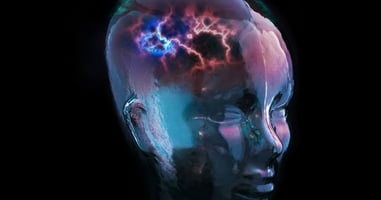Treating patients with posttraumatic stress disorder (PTSD) with exposure therapy or...
Recovery-Oriented Cognitive Therapy Benefits Patients With Schizophrenia
 |
Paul M. Grant, Ph.D., of the University of Pennsylvania and colleagues randomly assigned 60 adults with schizophrenia or schizoaffective disorder to 18 months of CT-R plus standard treatment or standard treatment alone. Standard treatment consisted minimally of antipsychotic medication, but most in this group received some additional services from the local community mental health center. Researchers who were blind to the treatment groups evaluated the study participants at the start of the trial and again 6, 12, 18, and 24 months later.
The researchers found that even though CT-R ended at 18 months, global functioning in the CT-R group remained superior to that in the standard treatment group at 24 months. The CT-R group also showed lower scores for negative symptoms (avolition and apathy) and for positive symptoms compared with participants receiving standard treatment.
“The findings presented here show that these improvements over baseline were maintained across the follow-up period when therapy was withdrawn, supporting the notion that CT-R produces an enduring change in beliefs and skills that enables individuals to continue to maintain gains without their therapist,” Grant and colleagues wrote.
Those with less chronic illness began to show improvement sooner, some as early as six months, with the most prominent benefits evident at the end of active treatment at 18 months. “[T]hose with greater chronicity showed reliable improvements, but they did so later (at 24 months), suggesting that clinicians should not give up on these individuals when it seems that they are not improving as quickly as hoped,” the authors added. “More intensive treatment might quicken their recovery response.”
The CT-R treatment consisted of engaging and establishing a connection with the patient, for example, through music, singing, dancing, or taking a walk, and then working collaboratively with the patient to identify personal, meaningful, and valued goals for the future, such as finding a job, reconnecting with family, developing relationships, and pursuing independent living in the community. Therapists used the cognitive model to help participants overcome obstacles, such as low energy, hallucinations, and disorganization, within a goal-directed framework with personalized treatment targets. Later sessions focused on consolidating gains and preventing relapse.
For related information, see the Psychiatric News article “Psychosocial Treatments Found Effective for Early Psychosis.”
(Image: iStock/Portra)





